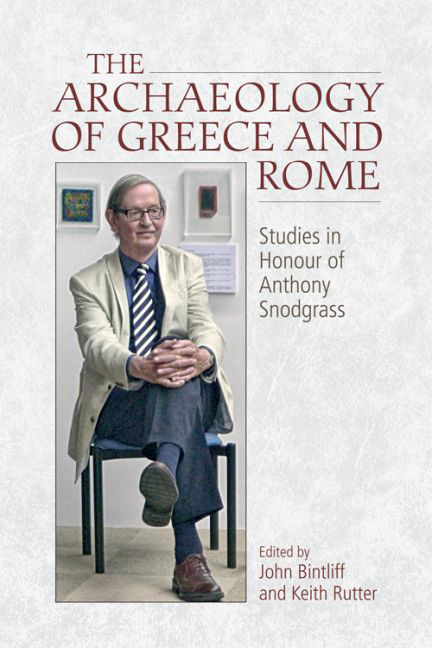Book contents
- Frontmatter
- Contents
- Preface
- List of Contributors
- List of Abbreviations
- Section I Prehistory
- 1 ‘The Coming of the Greeks’ and All That
- 2 Archaeology and the Archaeology of the Greek Language: On the Origin of the Greek Nouns in –εύς
- 3 Survey, Excavation and the Appearance of the Early Polis: A Reappraisal
- Section II Around Homer
- Section III The Archaic and Classical Greek World
- Section IV The Greeks and their Neighbours
- Section V The Roman and Much Wider World
- Section VI The Scholar in the University and in the Field: Personal Histories
- Index
1 - ‘The Coming of the Greeks’ and All That
from Section I Prehistory
Published online by Cambridge University Press: 26 May 2017
- Frontmatter
- Contents
- Preface
- List of Contributors
- List of Abbreviations
- Section I Prehistory
- 1 ‘The Coming of the Greeks’ and All That
- 2 Archaeology and the Archaeology of the Greek Language: On the Origin of the Greek Nouns in –εύς
- 3 Survey, Excavation and the Appearance of the Early Polis: A Reappraisal
- Section II Around Homer
- Section III The Archaic and Classical Greek World
- Section IV The Greeks and their Neighbours
- Section V The Roman and Much Wider World
- Section VI The Scholar in the University and in the Field: Personal Histories
- Index
Summary
I welcome this opportunity to offer a token of my great esteem to Anthony, with whom I have discussed questions of Greek prehistory, especially the end of the Bronze Age and the early Iron Age, on many occasions. I hope that this rather short, slightly informal and not entirely academic offering will interest him, for it relates to a theme that has always been at the centre of his work, the continuity of Greek society, and its focus is on an idea that has played a role in the traditional interpretation of the prehistory of Greece since the beginnings of the subject.
My title is deliberately chosen to reflect that of the comic account of British history 1066 and All That (Sellar and Yeatman 1930), for the same reason that I entitled a previous paper ‘The Catalogue of Ships and All That’ (Dickinson 1999a). In both cases I used it to indicate how an idea has become so embedded in the general consciousness of the educated as to be readily accepted as ‘what everyone thinks’ – or rather ‘remembers’, since, as the authors of 1066 and All That point out in their Compulsory Preface, ‘History is not what you thought. It is what you can remember’ (Sellar and Yeatman 1930: vii). This makes a serious point. Some explanatory models seem to have such appeal that they stick fast in the scholarly consciousness, to become what scholars ‘remember’, especially about matters that are not essential parts of their own branch of a discipline. So I suspect it is still widely ‘remembered’ among classicists, and quite a section of archaeologists too, that there was a ‘coming of the Greeks’, in the form of a population movement in the earlier Bronze Age which brought ancestors of the Classical Greeks into the Aegean, and that this movement has archaeological support in the form of significant changes in material culture.
I originally gave a paper with this title to the Oxford Greek Archaeology Group in April 2012.
- Type
- Chapter
- Information
- The Archaeology of Greece and RomeStudies In Honour of Anthony Snodgrass, pp. 3 - 21Publisher: Edinburgh University PressPrint publication year: 2016



